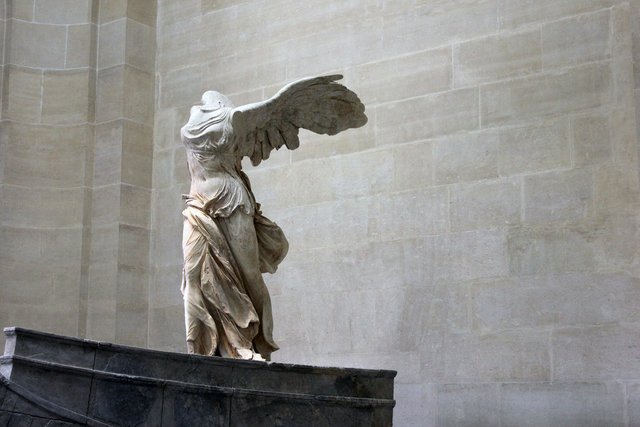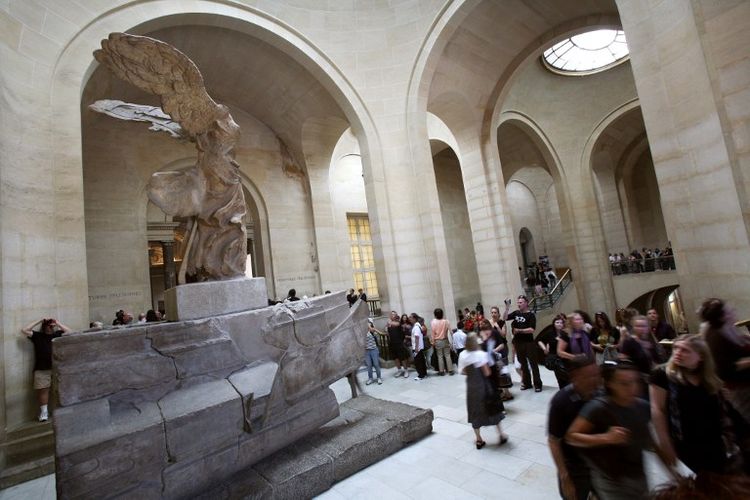Where does Nike come from?
One of the most celebrated sculptures in the world, is The Winged Victory of Samothrace, also called the Nike of Samothrace. is a marble Hellenistic sculpture of Nike (the Greek goddess of victory), that was created about the 2nd century BC. Since 1884, it has been prominently displayed at the Louvre. H.W. Janson described it as "the greatest masterpiece of Hellenistic sculpture", and it is one of a small number of major Hellenistic statues surviving in the original, rather than Roman copies.
Detail of the Winged Victory of Samothrace, also known as Nike of Samothrace, a Hellenistic Greek statue dated to the 2nd century BCE. Parian marble. Currently located in the Louvre. 
The context of the Winged Victory of Samothrace, discovered in 1863, is controversial, with proposals ranging from the Battle of Salamis in 306 BC to the Battle of Actium in 31 BC as the event being celebrated. Datings based on stylistic evaluation have been equally variable, ranging across the same three centuries, but perhaps tending to an earlier date.
The statue is 244 centimetres (8.01 ft) high.[6] It was created not only to honor the goddess, Nike, but also to honor a sea battle. It conveys a sense of action and triumph as well as portraying artful flowing drapery, as though the goddess were descending to alight upon the prow of a ship.


Hi! I am a robot. I just upvoted you! I found similar content that readers might be interested in:
https://en.wikipedia.org/wiki/Winged_Victory_of_Samothrace
Congratulations @thomasbalem! You received a personal award!
You can view your badges on your Steem Board and compare to others on the Steem Ranking
Vote for @Steemitboard as a witness to get one more award and increased upvotes!